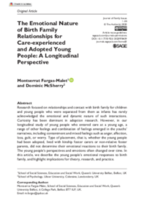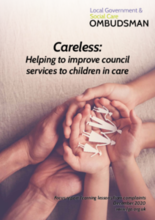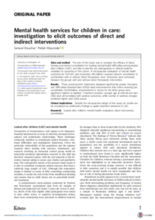Displaying 231 - 240 of 2221
This book outlines the nature of contemporary children’s care sector in England, highlighting both the demographics of those currently in care and the nature of available provision. It provides an account of the issues facing children and young people in care in terms of their vulnerability to criminalisation and exploitation.
In this article, the authors describe young people’s emotional responses to birth family, and highlight implications for theory, research, and practice.
This study uses grounded theory methods to generate a deeper understanding of the experiences that help youth achieve relational permanency, regardless of whether they emancipate from care or are adopted.
This study assessed the needs, concerns, and strengths of young adults (ages 18 - 26), previously placed in foster care, in response to coronavirus disease 2019 (COVID-19).
The Critical On-going Resource Family Education (CORE) Teen is a comprehensive foster parent training program designed to provide resource parents with the knowledge and skills to support teens in their care. This study examined results from trainings conducted across four states and one tribal nation in the U.S.
In this report, the UK Local Government and Social Care Ombudsman is highlighting the experiences of children in the care system – and the difficulties they face when councils get things wrong.
This study examines whether increased interaction and observation of young children by school professionals leads to an increase in school-based reports to child welfare authorities and in the identification of child maltreatment victims.
This article presents a case study of a young man who participated in the Mission Mentoring Programme - an innovative scheme that supports council employees to become mentors for looked after children - and found it helpful for his transition to adulthood and intended employment.
The aim of this study was to compare the efficacy of direct therapy and indirect consultation for treating mental health difficulties among looked after children (LAC), and also to identify any demographic or clinical predictor variables for outcomes in this cohort.
This article explores birth parents’ views on their needs and perceptions of support delivered by two different interventions: one offering support to individuals and the other providing a parental group.



